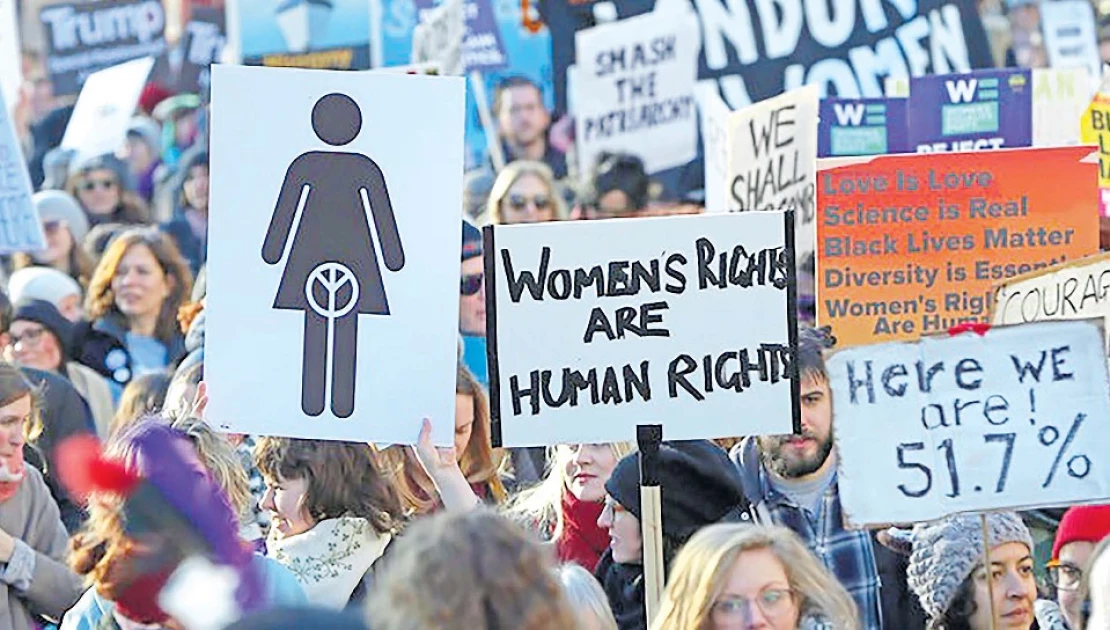The ever-evolving landscape of global health has brought new dimensions of complexity and significance to the forefront.
In a world grappling with unprecedented challenges, from pandemics to health disparities, the importance of diverse and inclusive leadership has never been clearer. As we navigate this terrain, we find ourselves drawn to a fundamental truth: the empowerment of women’s leadership is not just a choice; it’s an imperative.
Remarkably, despite constituting over 90% of frontline health workers and 70% of the global health workforce, women’s presence in leadership roles within the global health arena remains disproportionately low.
This disparity is even more pronounced in Africa, where women bear a significant burden of disease due to inequalities in access to essential healthcare, nutrition, and education. Amidst this challenge, the underrepresentation of women in leadership positions is unwarranted.
The State of Women and Leadership in Global Health report underscores the urgency of addressing this imbalance.
The report reveals that women hold only a mere 25% of leadership roles in global health organizations. While gender disparity is a global concern, it resonates deeply within the African context, where women’s leadership is vital for orchestrating transformative change.
Kenya grapples with a significant disease burden. Predominantly, communicable diseases lead to a majority of health complications and fatalities.
Over half the deaths are due to infectious diseases and injuries, while roughly 39% result from non-communicable diseases.
It is projected that in the coming years, the share of deaths from non-communicable diseases and injuries will continue to increase.
Likewise, Kenya is also grappling with a multitude of challenges related to its health workforce. The reduction in the 2023-2024 health budget to Ksh.141.2 billion, down from the previous year’s Ksh.146.8 billion, exacerbates the situation and washes down commitments made during the Abuja declaration of 2001.
This declaration served as a call to action for governments to allocate greater resources to the health sector.
The devolution of health service delivery to the 47 counties has been outstanding, however, it has not been without its complications, including the need to clarify the role of the national and county governments in health service delivery, high political influence and delays in remuneration with suboptimal motivation of health workers.
“The world confronts immense health challenges that urgently require solutions. Incorporating more women into leadership roles is essential, as their diverse experiences and insights are pivotal in addressing these health issues effectively,” says Amie Batson- President, WomenLift Health.
The challenges to health in Africa are as diverse as the landscapes themselves, necessitating solutions that are sensitive to culture, innovative, and deeply rooted in local dynamics. Here, women’s leadership takes centre stage.
Global Health organisations need to dismantle barriers that have impeded women’s ascent to leadership and usher in an era where diversity is not merely recognized but embraced as the cornerstone of progress. However, this shouldn’t just be about imparting skills and knowledge; but igniting a spark of leadership capable of transforming entire communities.
In a world where health challenges transcend borders and collaboration is paramount, women’s leadership in global health is not a luxury; it’s a necessity.
Through equipping women with tools, fostering peer connections, mentorships, and coaching, thus sowing the seeds of change in the fertile soil of aspirations.
The path to better health for all is paved by the footsteps of those who dare to lead, challenge norms, and make a difference in a world where health knows no boundaries and where women’s leadership is the cornerstone of a brighter, healthier tomorrow acknowledging that the empowerment of women’s voices is not merely about achieving gender balance; it’s about tapping into an untapped wellspring of wisdom and innovation essential for navigating complex health challenges.
A significant and immediate shift towards gender equity in the health workforce is now imperative. Women health workers, who form the backbone of our health systems, are currently facing burnout and demoralization.
It is crucial to support and uphold their well-being and morale, as they play an indispensable role in achieving global health objectives, such as Universal Health Coverage (UHC).
Ensuring their welfare and equal opportunities is not just a matter of justice but also fundamental to sustaining the very fabric of healthcare globally.
Dr. Norah Obudho is the Health Integration and East Africa Director at WomenLift Health. Liberty Kituu is the East Africa Communications Manager at WomenLiftHealth
This article was first published on citizen.digital


